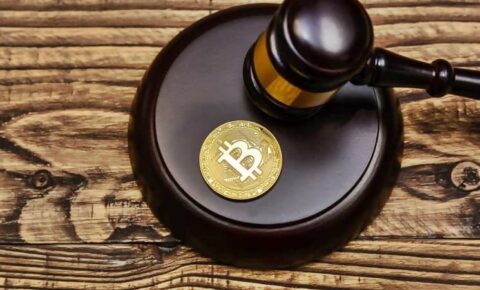With human evolvement, new inventions have also been witnessed since time immemorial. Digitalization of the whole planet is an amazing technological advance which is nothing less than a miracle. Some technologies still prevail while some have fizzled out over time. Bitcoin and blockchain are some of the more recent revolutionary technologies set to create disruption across the world.
In 2008, Satoshi Nakamoto (a pseudonym), introduced “bitcoin”, the first cryptocurrency based on blockchain and algorithms and hoped to create a peer-to-peer version of electronic cash which “would allow online payments to be sent directly from one party to another without going through a financial institution”.
Blockchain has gained popularity due to people’s lack of trust in financial institutions and governments because people have found a way to directly become part of the economy without being exposed to or left at the mercy of flawed financial institutions. The beauty of bitcoin is that, unlike traditional currencies, it is decentralized and not regulated by any flawed financial institution or government body, so there is less risk of issues pertaining to inflation and interest. Anyone can sell, purchase or invest in bitcoin according to one’s own preferences. Bitcoin also does not have limits such as those imposed upon traditional currencies by central banks.
Before we discuss the legal status of cryptocurrency in Pakistan, we need to address several questions: Is it halal or haram according to settled Islamic financial principles? If it is halal then is it also legal? Who is going to be responsible in case someone suffers a loss? Will a court of law entertain any breaches? Can we tailor the growth of bitcoin in a way that it complies with domestic laws? Can we legislate on it at all?
Cryptocurrency is like digital gold. If you buy it today and hold on to it for some years like gold or real estate, its price may increase. However, there is also a risk of loss as it shares the same concept of profit-and-loss as gold and physical assets (land, housing, etc.). In terms of Shariah, bitcoin falls into the category of “goods”. The criteria under which wealth has been defined by jurists can include bitcoin as well. Bitcoin can be stored on any electronic device and even if a person does not store it in a device and keep using it over the years, it will still remain safe like gold. This proves that it is self-contained and does not need a receipt, cheque or draft.
According to Article 18 of the Constitution of Pakistan 1973, every citizen has freedom to trade and carry out any business subject to law. According to Article 8 of the same Constitution,
“…the State shall not make any law which takes away or abridges the rights so conferred and any law made in contravention of this clause shall, to the extent of such contravention, be void.”
If people end up suffering from losses related to bitcoin, they may be considered responsible for assuming the risks themselves. However, for any frauds or breaches over the use of this technology, the government has to make regulatory bodies to deal with such issues. In the recent case of Waqar Zaka v Federation of Pakistan & Others (C.P.No.D-7146 of 2019), the State Bank of Pakistan declared on 13th January, 2020 that it had never declared bitcoin illegal. Even after this statement, local and international banks in Pakistan are causing hindrance to crypto traders.
In the same case, the Federal Investigation Agency (FIA) relied upon section 14 of the Prevention of Electronic Crimes Act, 2016 and deemed the entire trading technology as electronic fraud. Moreover, the FIA keeps arresting crypto miners and traders under the Pakistan Penal Code, particularly section 419 (cheating), section 420 (fraud), section 471 (forged documents as genuine) and section 109 (conspiracy, aiding and abating). There have also been allegations against the FIA that their own sub-inspector has extorted money from arrested crypto miners and traders even when no illegal activity has been found.
A notification issued on 12th May, 2017 points out that the Foreign Exchange Regulation Act, 1947 restricts citizens from importing or exporting any currency that the State Bank of Pakistan has not allowed. It should be noted that the Internet was not even around when this Act was made in 1947, so it is evident that the government is viewing this technology with an outdated lens. Moreover, bitcoin is neither a currency belonging to any particular country nor is it managed by any institution. It is completely decentralized throughout the globe.
Why is the Pakistani government and its financial institutions reluctant to allow and legalize this technology? When email was introduced, post offices also showed resistance but eventually had to accept the change. Similarly, banks do not want to allow a sudden shift towards this currency as it may hurt their businesses.
However, paper currency is expected to vanish soon and digital currency is set to become the main source of trading. Through digital currency, money can be sent from one part of the world to another in no time because of the decentralization factor. Digital transactions can also be easily regulated. Moreover, bodies such as the Federal Board of Revenue (FBR) will not have to wait a whole year to collect tax. Taxes can be paid whenever a digital transaction is made.
From silver coins and gold to paper and fiat currency, cryptocurrency may well be the next step in the evolution of money. Any of its demerits can be curtailed by monitoring and regulating its use, but in order to adapt to technological changes and keep up with the global economy, our flawed financial institutions must update themselves.
The views expressed in this article are those of the author and do not necessarily represent the views of CourtingTheLaw.com or any organization with which he might be associated.


